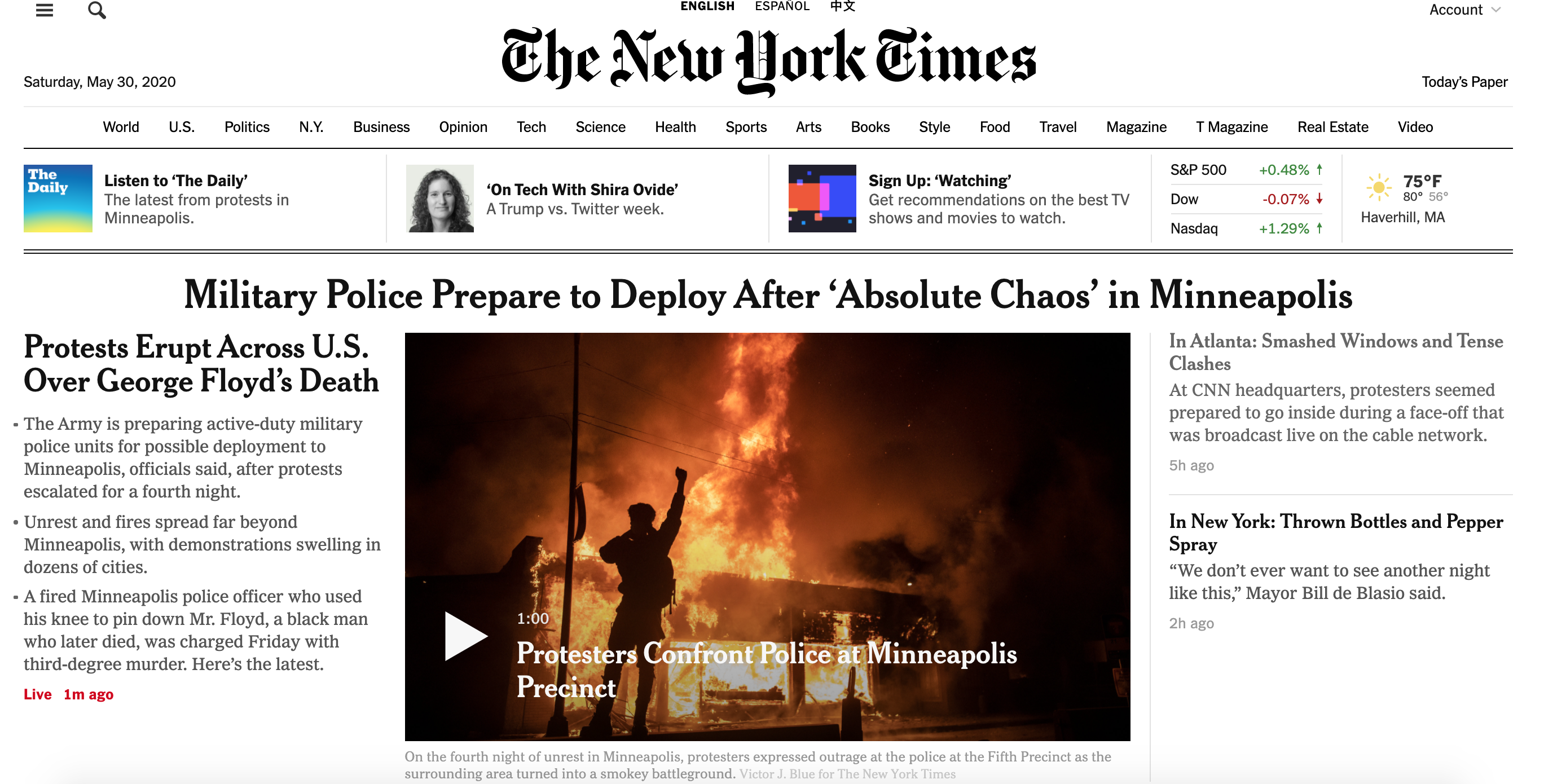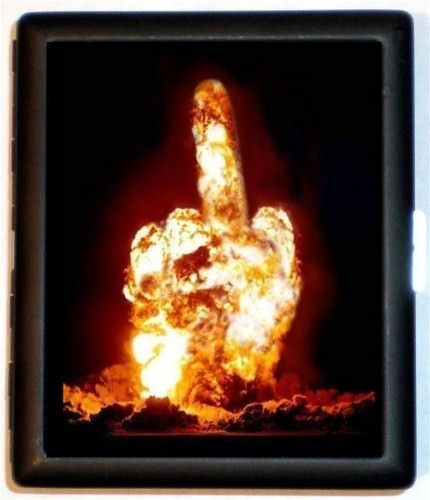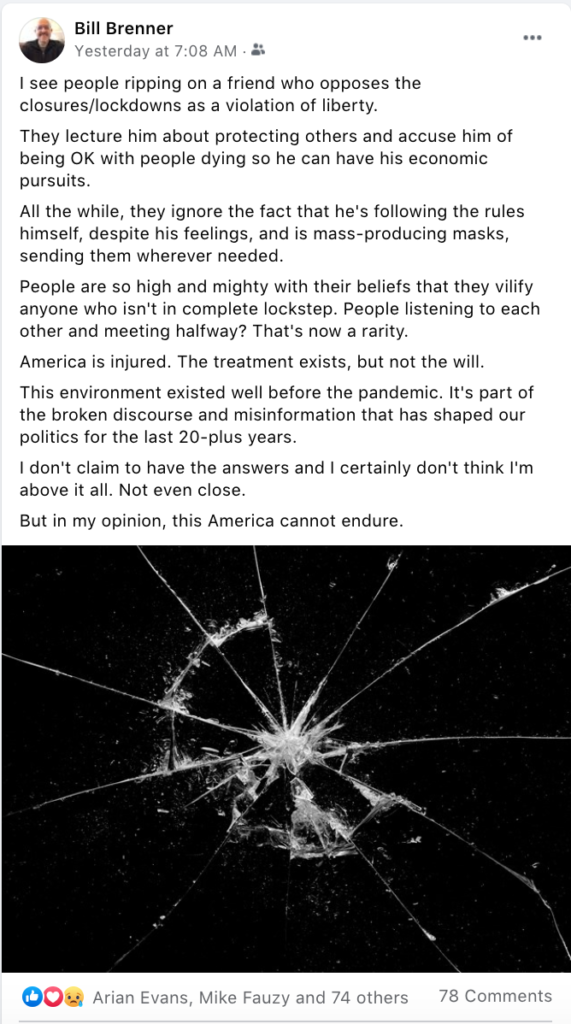I write this amid violent unrest across the nation. Angry masses are protesting police brutality after the death of George Floyd, a Black man who died after being pinned down by a White officer. That officer, Derek Chauvin, was charged with murder Friday.
With the internet full of pictures of a police station set aflame, overturned cars and rage-filled faces, I see some people on social media worrying that this is just another byproduct of a larger problem years in the making.
More than a couple people have suggested that this is a slowly unfolding civil war.
Mood Music:
The latest violence comes a few weeks after protests over the pandemic lockdowns, including a series of gatherings where armed protesters flooded the Michigan statehouse.
The civil war predictions usually show up in the comments of such threads. In more than one, I’ve voiced my own worry about it.
This thought is always in the back of my mind. In the early ’90s a lot of armed militias threatened violence. Some acted on it, the most tragic example being the Oklahoma City bombing in 1995.
But in the last decade, the political divide has become starker. The left and right fringes have become louder and angrier. We have a president who likes to fan the flames on Twitter. More than ever, it feels like America is imploding.
One such illustration is the Boogaloo movement, whose right-leaning anti-government members actively prepare for a second American Civil War. Another example is in the tactics of the left-leaning Antifa movement, founded as an anti-fascist entity but whose tactics have been branded as terrorism by some (Trump declared it a terrorist organization).
Are those fears justified? Time will tell, but let’s step back, take a breath and put things in perspective.
I don’t see the threat of civil warfare as out of the question. But I work in an industry whose job is to consider and plan for scenarios that seem crazy and improbable. Indeed, some crazy things have come to pass. Who would have thought, even four short months ago, that we’d be living in a world of pandemic-fueled lockdowns and an almost-complete freeze of the global economy?
One friend was warning of lockdowns and a depression-caliber economic calamity in late February and I thought he was being over the top. Yet here we are.
We should note a few things about what we see in the real world and online:
- Everything is hyper-magnified online. When your Facebook and Twitter feeds are full of pictures of armed protesters and buildings on fire, it’s easy to feel like the world around you is truly coming apart.
- The internet has made it easier for people at the extreme ends of the political spectrum to be heard. They are much more likely to spout off than people with more moderate views.
- The internet has given us more access to data than we’ve ever had before, but that data never truly shows the full picture and it’s easy for us to cherry-pick the bits that fit into our preconceived views. There’s a term for that: confirmation bias.
- We’ve always had violent civil unrest in this country. The aftermath of the MLK assassination in 1968 and the L.A. riots in 1992 are but two examples.
Other things worth remembering:
Despite all the vitriol online, there are still a lot of good people in the world who will drop everything to help those in distress, even those with whom they passionately disagree when it comes to politics. I see people who don’t agree on a lot of things stepping up to help each other, like one guy who donated to an online fundraiser to help someone he argues with all the time, after they lost their home in a fire.
Though social media makes it easy for people to say angry things, most of the people I’ve seen do it don’t act on it. It’s not crazy to suggest that the ability of some to blow off steam online has helped them stay nonviolent in reality. Of course, the same can be said for those who take their anger from social media to the real world.
What to do with all this information? I don’t know. I only know what I’ll do with it — try to continue doing the right things through my daily actions.
The world will continue to resemble a Dumpster fire for some time to come.
We can’t fix everything on our own, but there are things we can do each day to make the world a better place.
That’s an obvious thing to say. But in a world gone mad, the words need repeating.



